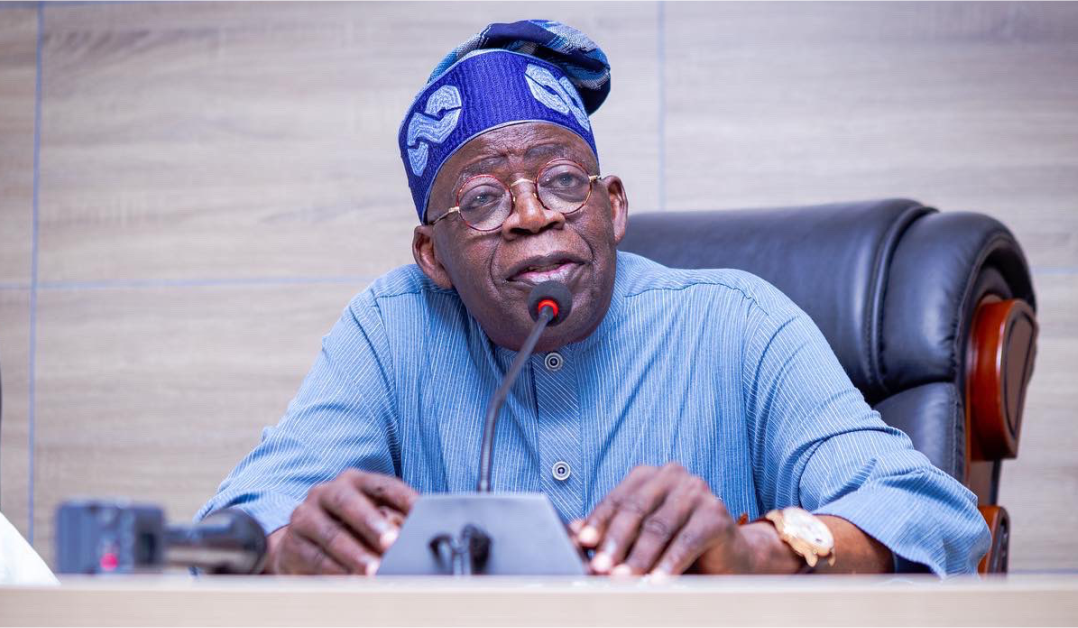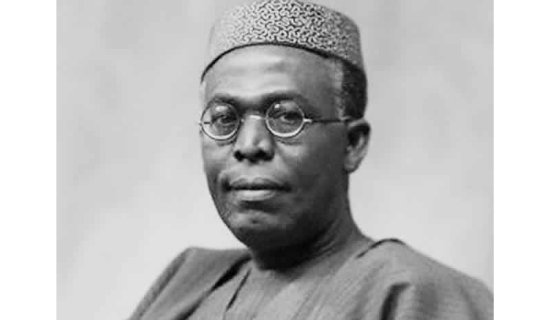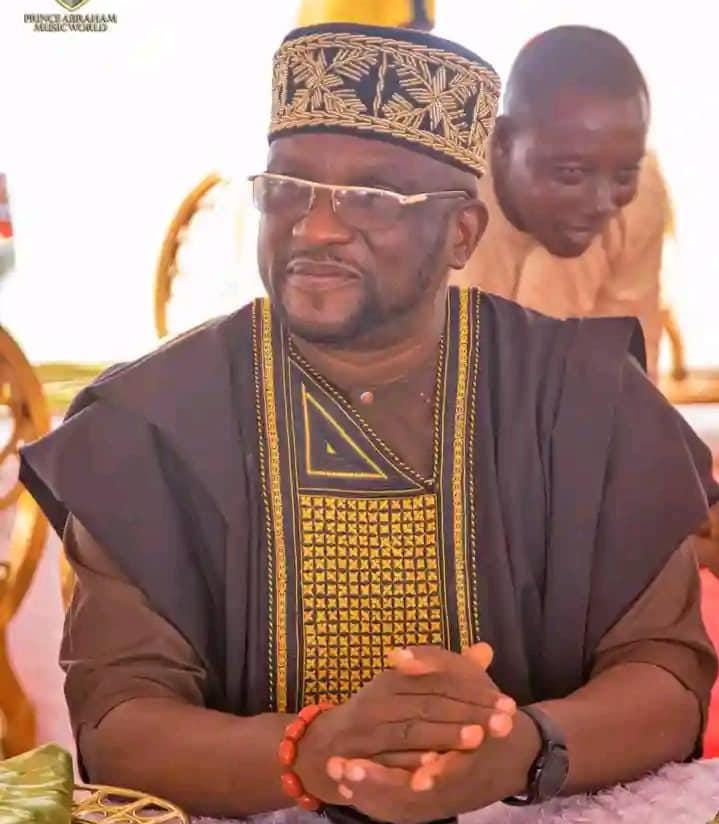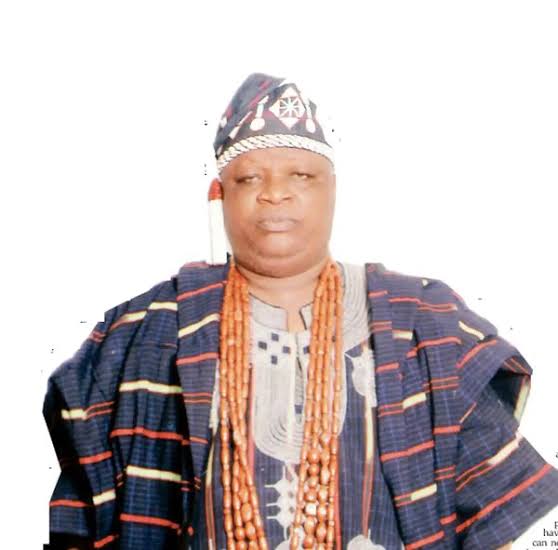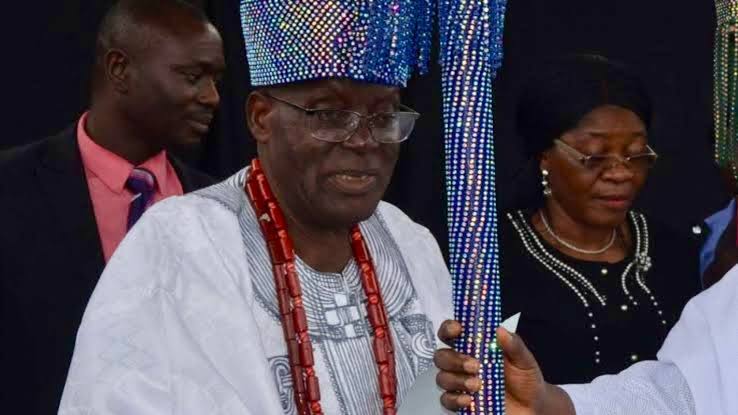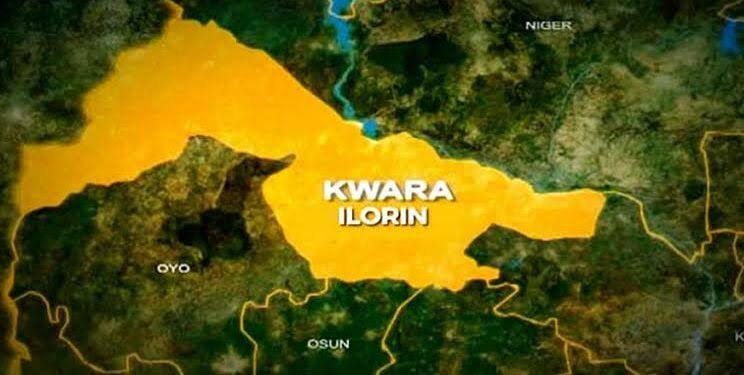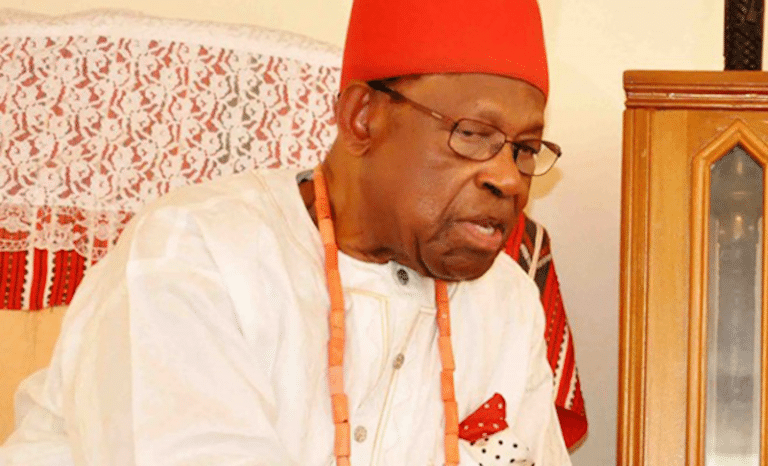..global economy is resilient but fraught with risks
.. it’s projected by IMF to grow by 3.3% in 2025/2026
…Africa has highest growth potential globally and should follow China and India’s economic trajectory
The Chief Obafemi Awolowo 2025 memorial webinar was held on March 6 where global issues were ironed and adequately thrashed out by renown economists, global economy players proffered solutions thorny matters.
This year’s theme was tagged:”Our 21st Century World: Reflections and Projections.”
The webinar was chaired by former president of the Republic of South Africa, His
Excellency Thabo Mbeki, while the keynote speaker was the Director of the Centre for Sustainable Development & University Professor at Columbia University; a worldr enowned economist, innovative educator and global leader in sustainable development, Professor Jeffrey Sachs.
The Guest Speakers were the President, African School of Governance, Professor Kingsley Moghalu, the Director General, Nigerian Institute of International Affairs (NIIA), Professor Eghosa Osaghae, a Pan Africanist, rights activist and lawyer, who is also the Managing Director, Programs, Open Society Foundation Africa, Mr. Brian Kagoro and a Professor of Entrepreneurship and Digital Transformation at the Sheffield Business School, Sheffield Hallam, United Kingdom, Professor Ṣeun Kọlade.
The webinar was moderated by three eminent academics from foremost Nigerian universities.
They are a retired Professor of lnternational Relations at the Ọbafẹmi Awolọwọ University (OAU), Professor Alade Fawọle; a Professor of Political Science from the same university, Professor Sat Obiyan and Director, Centre for Excellence in Teaching and Learning, University of Ibadan, Professor Adedoyin Aguoru.
The Executive Director, Ọbafẹmi Awolọwọ Foundation, Ambassador Dr. Ọlatokunbọ Awolọwọ Dosumu, in her welcome address stated that the webinar was planned to focus on four critical sub-themes—The Economy, Technology (with special emphasis on artificial intelligence), the North-South Dynamics, and Africa’s Options for Development.
She added that the webinar, themed ‘Our 21st Century World: Reflections and Projections’, was motivated by the rapid transformations which the 21st century had faced across all facets of human life, driven by technological innovation, economic shifts, and evolving geopolitical landscapes.
Awolọwọ Dosumu added that” the webinar provided an interdisciplinary platform to reflect on those changes and explore forward-thinking strategies to navigate the challenges and opportunities of these times.
She said as the world reflected on the legacy of Chief Ọbafẹmi Awolọwọ, it is reminded of his indefatigable commitment to knowledge-driven leadership, economic self-reliance, and social justice.
“These values remain as relevant today as they were in his time, particularly as we navigate an increasingly complex global landscape marked by, among others, the urgent need for sustainable development.
Ambassador Awolọwọ Dosumu said the event was more than a talk shop or an academic exercise. She emphasised that it was a call to action.
She expressed her fervent hope that the webinar would not only serve as a platform for intellectual engagement but also as a catalyst for transformative action in respective spheres. She hoped that the programme would spark innovative ideas and forge pathways toward a more just, prosperous, and technologically empowered world.
The Keynote Speaker, Guest Speakers and other participants observed as follows:
Africa and the world at large are experiencing complex and evolving challenges. The African continent, in particular, faces a multifaceted situation marked by political, economic, and social transformations.
MAJOR TAKEAWAYS:
Key developments which include AU’s New Commission, signal potential shifts in regional governance. The global political landscape is transitioning toward multipolarity influencing international relations and economic structures.
Rapid advancements, particularly in artificial intelligence (AI), are reshaping industries and societies, bringing both challenges and opportunities.
These pressing issues call for critical reflection and meaningful dialogue as we navigate the uncertainties and possibilities ahead.
The global economy is resilient but fraught with risks. It is projected by IMF to grow by 3.3% in 2025/2026.
Tariff wars will create inflation, instability in debt markets, instability in capital markets, productivity declines, decline in competitiveness, and unemployment in some countries. All these have consequences for the world, and particularly for Africa.
There is the rise of the BRICS nations, now about 10 countries, including Egypt and Ethiopia. They have 37 percent of world GDP; BRICS has 55 percent of world population.
The rise of the BRICS nations is reshaping international trade, finance and investment in global economy, and constituting a challenge to G7 countries and the US dollar.
Reserve diversification is giving countries (e.g. China) advantage, but overtaking the dollar will not happen anytime soon.
There is political risk of the rise of populism in the West and consequences for economic policies globally.
The rising trend on national interest calculations has implications for developing countries like Nigeria which maintain a naive attitude towards foreign investments.
AI is a transformative force: the AI revolution is the most consequential development of our time.
It will dramatically alter the global economy positively, boost GDP, increase inequality and work-place displacement and will significantly impact world economy in the years to come.
Deepseek’s emergence and astonishing efficiency have sent shockwaves through the ecosystem.
AI as a transformative force in the Industry 4.0 epoch will redefine power structures.
AI is not just a tool but a disruptive force that challenges societal norms and global power structures.
AI is reshaping the global workforce, but its effects are unevenly distributed.
Without inclusive AI governance, economic and political inequalities will escalate, reinforcing global disparities.
AI is redefining labour markets worldwide. In the Global South, it is reshaping employment landscapes in ways developing countries are not prepared for.
AI is revolutionising warfare and geopolitical competition just as it is shaping global governance but not always in ways that promote democracy. In the Global South, we see digital authoritarianism.
Dangerous competitions by the world powers are going on over Africa’s strategic minerals. Africa must invest more in infrastructure and human development because high growth results from high investment rate.
Nigeria has a role to play in Africa: it should take the lead in continental development activities.
The world is in a period of tremendous flux and disruption. The rise of China is the most significant political reality of our age.
Russia’s growing power and geopolitical escalations are reshaping global dynamics.
Technological advancements, including robotics and AI, are fundamentally transforming industries and societies.
Massive demographic shifts are occurring: China’s population has peaked and Africa’s population will peak by the end of the century, making the continent a key player in future global development.
Upper-secondary education is expensive but returns are the highest any society can achieve.
The Global South is highly fragmented while the days of humanitarian assistance are over.
Africa needs growth. Urbanisation myth is linked to rural neglect.
Growth will not occur if there is degradation of ecosystems.
Ownership of Africa’s wealth should be by Africans, and not only by an elite few.
Humanity is on the verge of history, on the precipice of technological revolution. Africa must not merely be a participant but a leader, claiming its rightful place in an AI economy.
We have not put in place a policy framework that mines the value of what this brings to us.
Africa has 30 per cent of global mineral reserves. But in terms of how we structure our laws, the bulk of ownership will consistently be in foreign hands unless we take concrete steps to reverse the situation.
We cannot make progress in science and technology if we do not seize the moment and develop our own way of building science and technology.
CHALLENGES
The following challenges were observed:
The trade wars being fought by world powers will affect Africa in very profound ways.
Sixty-nine percent of all trade by Europeans is in Europe and 60 percent of all trade by Asia is in Asia.
This is not so with Africa.
Institutions like IMF are weakened by the rise of populist governments.
Developing economies are being sidelined, deepening economic disparities.
AI is dominated by a handful of nations, reinforcing existing economic divides. The gap between AI leaders and lagging economies continues to widen. Beyond hardware, AI models are centralised.
AI is revolutionizing warfare raising new global security concerns.
AI is shaping global governance but not democratically, leading to digital authoritarianism.
Nations leading in AI control the AI economy, consolidating geopolitical and economic power.
AI is not just an innovation—it is a geopolitical asset that could deepen the global divide if current trends persist. It is reshaping economies and governance at an unprecedented scale.
Nations that lead in AI dictate standards and capture most valuable sectors of the AI economy. This is an important challenge Africa has to grapple with.
As deforestation is worsening, agriculture and food security become more threatened.
Geopolitical wars between the global powers pose a challenge to Africa.
The biggest challenge for Africa is lack of long-term, low-cost financing of economic programmes. Lending should be long term, e.g. for 30 to 40 years.
A number of questions beg for answers: From Africa’s point of view, how should Africa as a unit be positioned for success in the coming years? How should Africa face climate change, threats to biodiversity? How should Africa participate in a tough geopolitical world that is now multipolar?
The Global South is technologically marginalized. How should it avoid digital colonialism?
The population of Africa is growing in inverse proportion to its economic growth.
RECOMMENDATIONS
The webinar came up with the following recommendations:
Africa should cultivate, nurture and choose competent leaders that will tackle its challenges of development.
Africa has the highest growth potential globally and should follow China and India’s economic trajectory.
Key Strategies for Africa’s economic transformation should include huge investments in education. A 20% return on investment makes education a critical driver of economic growth.
Young people need quality education, and there’s no time to waste for them. When they drop out, it’s costly for society.
People of productive age should be encouraged to be well educated. This will increase economic growth and help manage population explosion.
Africa must change to more sustainable economic models.
Countries of Africa must go regional. Africans should not continue looking to the international community for economic and political salvation. We should look inwards.
We need to shift to more sustainable economic models.
We need a bold, indigenised AI agenda in Africa.
Without investment, strategy or plan, African nations will remain consumers rather than producers. Africa needs to develop cutting edge strategies and plans.
The next 40 years should be a period of rapid growth in economy and technology for Africa.
To truly empower Africa, strategy must go beyond regulatory frameworks.
Regional development banks should be developed and strengthened to provide the required development funds.
India is growing at 6% per year, transforming its economy. Africa should aim for 8% annual growth over the next decade.
Investment in infrastructure is essential for supporting industrialisation and connectivity.
Africa’s innovation economy requires strong state-backed funding.
Encouraging private-sector investment and technology adoption is vital.
Africa should target 40% of GDP in investment, similar to China’s model.
Continental Free Trade Area is a vital step, but regulatory barriers must be addressed.
Economic growth cannot happen one country at a time—a stronger African Union (AU) is needed.
Africa must engage more actively in the global financial market to secure funding for its development.
By prioritising investment, innovation, and integration, Africa can achieve transformative economic growth in the coming decades.
The African Union should lay out a rapid growth vision for Africa.
The next 40 years should be made a period of extremely rapid economic growth for Africa.
Africa should model and implement a high-growth strategy for the coming years.
Africa’s innovation economy needs greater investment.
Africa can accomplish a high rate of investment, but it requires a strategy at the AU level.
Africa will not achieve rapid growth one country at a time.
The African Union needs to be more effective in playing a central role in an Africa-wide economy.
Africa should be spending a lot more on international projects, not the kind of borrowing it is currently doing. Short-term maturity debts are a mistake.
Africa’s growth requires a strategy, including increasing the scale-up of the African Development Bank.
Africa should partner with countries committed to long-term development. That is where long-term financing will come from.
Other multilateral banks should be scaled up. New ones—e.g. East African Development Bank, West African Development Bank, etc.—could be established to drive development.
Africa should not let anybody talk it out of securing funding for long-term, large-scale investments. Nigeria has a leadership role to play in this. If Africa succeeds as a continental-scale economy, Nigeria will boom.
Africa should act as a unit, think and act like one, and its success in the next 40 years will be huge.
Every African, especially the youths, should develop new skills. Old skills are likely to become obsolete with time.
There should be redistribution of resources across regions and populations.
School curricula should be upgraded to re-skill the youths.
Africa needs a rearrangement of priorities to tackle brain drain.
Africa should stop depending on humanitarian aid from outside. It should develop new models of tackling its humanitarian challenges. New funding models is suggested.
The Global South should evolve options and choices that will develop its own technology.
The Global South must develop models that will translate to generating enough funds for its own development and depend less on the North.
If Africa is to play pivotal roles in energy transition, reforming trade rules becomes vital.
Africa has to look at how its education system is linked to wealth potential.
Financing gaps can be closed by cooperation and better utilisation of resources.
Africa will not develop by one magic bullet: the African development agenda is being shaped by technology.
We need to construct a unity that is economically and technologically literate.
If harnessed strategically, Africa’s talent pipeline can revolutionalise development. Africa must decide.
There is a fundamental opportunity in development, and it is to develop rural and local economies.
There is a need to rethink African urban growth and step away from inherited colonial models of administration.
Africa must think long-term, not just of decongestion, but of diversifying growth. Development requires a measure of growth, inclusion, sustainability and wisdom.
The Ọbafẹmi Awolọwọ Foundation should partner with the Thabo Mbeki Foundation on strategies for the implementation of the recommendations made at this webinar.
